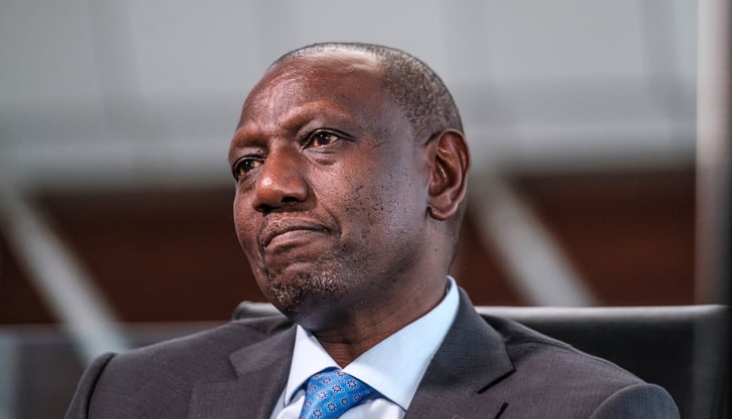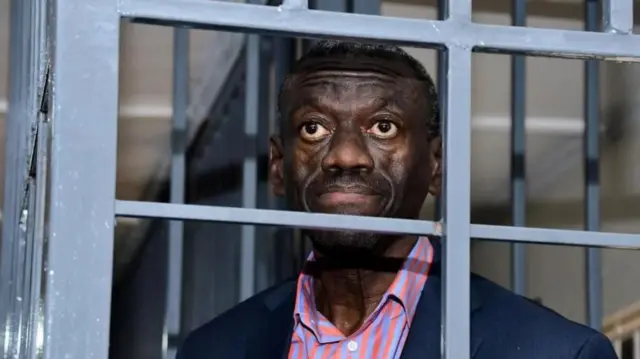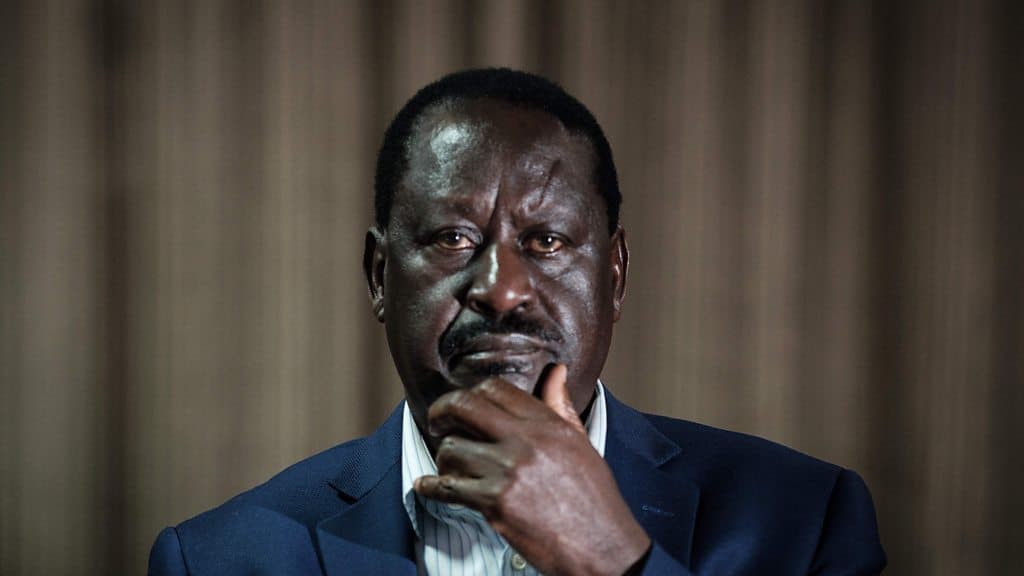KENYAN President William Ruto's administration is quickly facing growing Disdain and Rejection across the Country, with the Citizenry expressing dissatisfaction at the government's initiatives and unfulfilled promises, more than two years since the election.
Salaried Citizens are at loggerheads with the Kenya-Kwanza administration over the new statutory deductions for the Social Health Insurance Fund and Housing levy, which have pushed workers' payslip cuts to unprecedented levels of 40-45% of gross pay, exceeding deduction rates in many Western countries and leaving some workers with less than a third of their gross pay after loan obligations.
The implementation of the 2.75% SHIF deduction, following the 1.5% housing levy introduced in July 2023, along with increased NSSF contributions, has significantly reduced workers' disposable income and purchasing power, leading to a 15-20% decline in retail and consumer goods sales according to the Federation of Kenya Employers.
The impact is reflected in Kenya Revenue Authority data showing a rare 2.89% year-on-year drop in average gross monthly pay for private sector workers to Sh75,781 between June and September, the first such decline in 30 years.
This reduction in take-home pay has forced companies to pause hiring or shift to casual employment, while the Purchasing Index indicates falling demand for goods and services, prompting businesses to either shut down or scale back operations.
The misalignment in Kenya’s revenue collection strategy, juxtaposed with its fiscal ambitions, is a recurring dilemma rooted in the historical overreliance on formal sector taxation.
This echoes a colonial-era legacy where payroll levies formed the backbone of revenue systems in highly structured economies—systems ill-suited to Kenya's 80% informal workforce.
Globally, progressive economies have pivoted toward consumption-based taxation, leveraging its non-discriminatory nature to distribute the tax burden more equitably across all income strata.
An alternative strategy could involve implementing a universal levy or consumption tax, such as a marginal increase in VAT or an excise duty on non-essential goods.
This method would distribute the financial burden more equitably across the population, ensuring consistent revenue streams without stifling economic activity.
Such a shift could alleviate pressure on formal sector employees while maintaining the government's fiscal objectives, highlighting a need for innovative policy solutions that align with Kenya's unique economic structure.
Failure to address these systemic issues will only exacerbate existing inequalities and hinder Kenya's development goals. The Blame is now President Ruto's, with Salaried Kenyans clearly Coming out to say, " Ruto Must Go".
Ruto, has also been on the Spotlight, following the police conduct, during the Gen Z Finance Bill Protests, which led to the loss of several young Lives. The Country's security agencies Forceful approach and alleged shooting of unarmed Protestors has been condemned by Human Rights organizations, in and Out of the East African Country.
Despite the Withdrawal of the Finance Bill, incidents of Alleged Abductions have continued to be reported with the head of state accused of allegedly suppressing Freedom of Speech by orchestrating abductions of Government Critics.
President Ruto's administration has also had several Corruption and Conflict of Incidents since it's ascension to power.
A recent report delved into how top government officials and politically connected individuals are allegedly benefiting from lucrative government contracts.
This has raised concerns about the administration's commitment to transparency and fairness, especially given Ruto's campaign promises to root out corruption and end favoritism in public procurement.
One of the key figures mentioned is President Ruto himself, with claims that his Weston Hotel has secured numerous government contracts for catering and other services.
This ties into a broader pattern where individuals close to the administration, have allegedly influenced contract awards.
Powerful individuals like Silas Kibet Simatwo, a long-time associate of Ruto, have taken up pivotal roles within government projects, especially in health. Simatwo’s position in the Digital Health Agency (DHA) has fueled skepticism, given his history in insurance and prior business ties with the President.
Such appointments raise questions about the fairness of processes and whether the selection criteria were truly based on merit.
Additionally, the controversy extends to influential figures like David Ndii, an economist, and Mary Wambui, a businesswoman, who are implicated in securing major contracts.
Critics argue that the lack of transparency in awarding tenders to politically linked individuals undermines the credibility of the government’s anti-corruption agenda.
The concern is that Kenya’s public resources are being channeled to a select elite, leaving the public with the sense that the same old patterns of favoritism are in play.
This situation paints a troubling picture of Kenya’s current political landscape, where campaign pledges to clean up corruption appear to be overshadowed by reports of cronyism.
As Kenyans watch these developments unfold, there's a growing call for stronger oversight mechanisms and a return to competitive and transparent public procurement processes.
This has fueled 'Ruto Must Go' chants in Public Gatherings, a slogan that has spread like Wildfire on Social Media Platforms in the East African Country.
According to the Critics, Mr. Ruto has turned against the same people who believed in him and unleashed unimaginable atrocities against them including imposing crippling taxes and forced disappearances, against young Kenyans who dared to criticize his policies.
The citizenry is decrying of anguish, anxiety, and destitution seeking liberation from one of the Country's most Popular Politician who once was driven by the desire to serve them.
Those Opposed to Ruto's Policies, claim that the country is reeling from biting economic depression and social upheaval, reiterating the same call, 'Ruto Must Go'.
The President on the other hand claims his administration has in the last two years, managed to Stabilise the Economy, citing a Stable Shilling and Central Bank's Forex Reserves.
Additionally, Mr. Ruto, the Deputy President Kithure Kindiki and leaders affiliated to the Kenya-Kwanza administration have exuded confidence in the Government, urging Kenyans to give them time to deliver on their Promises.
However, Young Kenyans are running out of Patience.
The government of Kenya is struggling with cyber-activism, where young people are using social media platforms to criticize state initiatives, spread information about government activities, and organize protests.
The Young Libertarians are expressing their growing dissatisfaction with issues like unemployment, corruption and unfulfilled campaign promises.
Government officials have decried the Movement's impact, terming it as "cyber-bullying" aimed at delegitimizing President Ruto's actions.
This tech-savvy generation has transformed ethnic and political divisions into a pan-African narrative that challenges the post-colonial state.
They use grassroots mobilization and sophisticated digital strategies to make it harder for governments to repress dissent.
The movement's leaderless, decentralized structure and ability to quickly adapt tactics to police brutality in Kenya, make it effective.
This activism seeks systemic change rather than political representation and extends beyond national borders to address regional governance issues.
The movement has maintained momentum despite government crackdowns and used international attention to pressure domestic institutions.
At the beginning of last year, the Kenyan President warned that the country’s moral fabric is at risk of decay if the manipulation of the digital spaces, more especially that of social media, is going to continue.
President William Ruto's headache intensifies each day, with his administration witnessing scrutiny unlike any other in Kenya's political history.
This new civic engagement, with its horizontal organization and focus on accountability, changes how young Africans view the state and suggests a long-term political shift in the East African Country.







